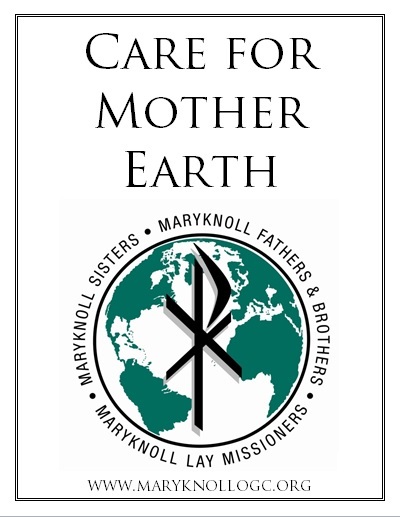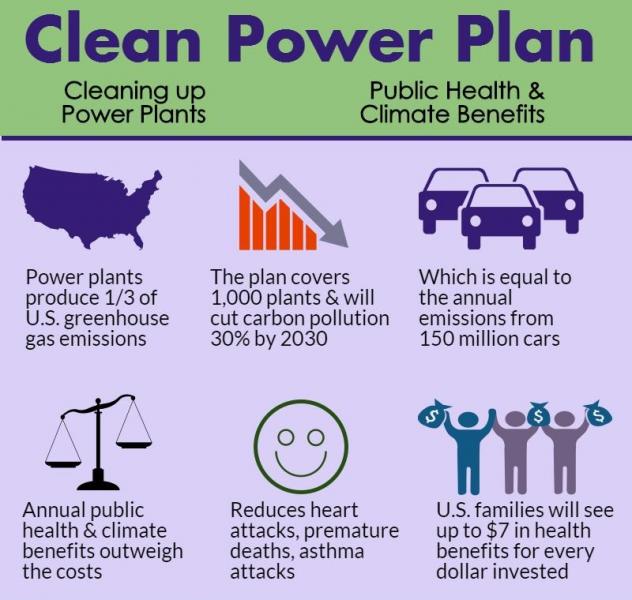Understanding the new executive order on climate change
Learn how the new executive order affects U.S. efforts to address climate change and what can you do right now to protect the Earth.
On March 28, President Trump took significant steps toward removing the United States from the global effort to address climate change by instructing federal regulators to rewrite key rules meant to curb U.S. carbon and methane emissions, two potent greenhouse gases that contribute to climate change. You can read the new executive order here.
These rules are key components of the U.S. commitment to the Paris climate agreement. Each of the 195 countries in the agreement committed to implementing a national plan to reduce greenhouse emissions. We produced a two-page summary of the Paris climate agreement when it was signed in 2016.
As the world’s largest contributor to global warming pollution, the U.S. rules on carbon and methane emissions are especially important.
What will the executive order do?
- The Environmental Protection Agency (EPA) will rewrite the Clean Power Plan (see infographic). The plan, which was set to go into effect in 2021, instructed states to replace coal-fired power plants with natural gas, wind, coal and hydroelectric energy infrastructure which would create jobs, improve health, and reduce emissions. The plan had also set targets for states and gave the states the flexibility on how they would reduce carbon emissions. Many states were already on their way to achieve the targets set in the plan.
- The Department of Interior will rewrite a rule restricting fracking on public and tribal lands. Hydraulic fracturing is used to extract gas and oil and releases methane and other toxic chemicals linked to cancer. The current rule is estimated to save 175,000-180,000 tons of methane emissions per year.
- All federal officials will refrain from considering the impact of climate change in decision-making.
- The Department of the Interior will remove a moratorium on coal leasing on public lands.
What happens now?
While the new executive order does not say that the United States should withdraw from the Paris climate agreement – in which the U.S. pledged to cut its greenhouse gas emissions between 26 and 28 percent by 2025 compared to 2005 levels – this action, along with earlier announcements to gut emissions reduction efforts from other sources, does attempt to unravel the steps taken by the Obama Administration for the U.S. to meet this goal.
But the moment this executive order is signed the Trump administration will be sued. (Here‘s one example.) The Clean Power Plan was created in response to a federal court ruling that the EPA must regulate carbon dioxide as a pollutant. The courts also upheld the methane rule. An executive order does not make those rulings go away.
What should we expect in the future?
There are real reasons to hope. There is nothing the Trump administration can do to reverse the fast-falling cost of solar and wind power, two forms of clean energy that produce significantly less pollutants than coal. Coal is more expensive than most other forms of electric generation today. Most energy industry experts agree that the coal industry is dying and that can’t be reversed. Power plants are fifty-year assets. The political disagreements today are about the old coal power plants, the pace of change, and the mix of what comes next. Power plant investors know that carbon regulation is inevitable and their money is at risk in coal. A deeply unpopular and divisive president won’t change their minds.
What can you do?
First, click HERE to ask your Congressional Representative to join the bipartisan Climate Solutions Caucus.
The Climate Solutions Caucus is a bipartisan group in the U.S. House of Representatives which will explore policy options that address the impacts, causes, and challenges of climate change. The caucus was founded in February 2016 by two representatives from Florida, Rep. Carlos Curbelo (R-FL) and Rep. Ted Deutch (D-FL), who serve as co-chairs of the caucus. Florida is at the highest risk for flooding in the United States due to rising sea levels caused by global warming.
Second, call your Senators to ask them to speak out in support of the Clean Power Plan and taking action to address climate change.
Dial 877-429-0678 to reach the U.S. Capitol switchboard. When prompted, press or say “One” for the Senate and say the name of your state or enter your zip code, to be connected to your senator’s office. When a staff person answers, ask to leave a message for the senator. Call twice to leave a message for both of your senators.
Here is a sample script:
“My name is ______ and I live in [city and zip code]. I would like to leave a message for the senator. As a person of faith, I ask the senator to please speak out against the executive order on climate change regulations. The Clean Power Plan is vital to protecting our common home, tackling climate change, getting control of our energy future, and creating clean energy jobs. This executive order endangers all of these priorities.”
Third, join us at the People’s Climate March in Washington, D.C. on April 29.
 We invite you to march with us, help amplify the Catholic voice at the march, and lift up the teachings of the Catholic Church on caring for creation and those who are most vulnerable to the impacts of climate change.
We invite you to march with us, help amplify the Catholic voice at the march, and lift up the teachings of the Catholic Church on caring for creation and those who are most vulnerable to the impacts of climate change.
We will meet at 9 a.m. Mass at St. Dominic Catholic Church, 630 E St SW, Washington, D.C. 20024. Feel free to share the event page for the Mass on Facebook with others who might be interested. Send us an email to let us know you are coming: ogc@maryknoll.org.
All are welcome! If you have any questions or concerns, email us at ogc@maryknoll.org or call (202) 832-1780.
Print our sign (pictured) and carry it with you to the march!
For information about more faith-based events related to the march, go to https://faith.peoplesclimate.org/.
The day before the march, on April 28:
Join the Catholic Climate Covenant’s free lobby training on the morning of April 28 to learn how to meet with your members of Congress and ask them to work together to act on climate change.
Join Catholics for a dinner potluck at the Stuart Center on the evening of April 28, followed by a film and night prayers around the fire pit. The Stuart Center offers affordable accommodations too. RSVP for the potluck and learn more about room rentals.
Lastly, if you can’t make it to D.C. for the march:
Join or organize a sister march in your local area.
We hope to see you at the march this April! Feel free to contact us with questions or concerns at ogc@maryknoll.org or (202) 832-1780.

